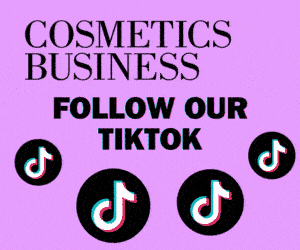Inclusive has become more than a buzzword; it has become important to us. The beauty space is, as is so often the case, right in the middle of this change.
Language, and the way we address each other in particular, has probably never been under so much scrutiny.
The representational baggage that accompanies it is under the microscope, particularly by the emerging Gen-Z market, and the beauty industry is responding by examining its use of words that could be divisive.
The beauty industry has undergone a shift from being damned to being praised for its use of representation in images of what beauty means.
The way it has addressed the growing awareness and dislike of the Barbie and the square jaw, stubbled "perfect" image among consumers is admirable. Not only did it embrace the change in the zeitgeist, it took the lead.
Product ranges that encompassed a more diverse consumer set, inclusive representation, and less gender pigeonholing were just a few of the changes brought about by an awareness that shook the industry.
Visually, the beauty industry has shifted its perspective and adopted new representation opportunities more than any other.
However, images are not the only story. Language, whether verbal or written, is also firmly in the headlights.
The language effect
Remember that saying that a picture paints a thousand words? Well, it may be the other way around. There is still debate about the way words and images are processed by the brain, but recent work seems to confirm that we, at least partially, transpose words into images. Whether this is an absolute truth or not, words have power.
They create impressions and have influence. There is an argument, therefore, for changing some of the beauty industry's regularly used descriptions because the message they carry is potentially, albeit unintentionally, damaging.
Some terms currently being questioned include anti-ageing, flawless, anti-wrinkle and skin perfection.
We are asking ourselves not what do these terms say but what do they mean?
Certainly, the prefix anti, for example, is normally associated with a dislike or opposition to something.
Are we, therefore, promoting age as an adversary to be overcome? Is a product specifically "anti’-ageing" because age is the enemy?
If so, then the follow-on question must be to ask if that whether that creates a rather negative stereotype of age and suggests age and beauty different things?
Similarly flawless, skin perfection, and similar terms, are being considered in the light of whether they are perpetuating the idea that you must strive for unattainable perfection.
Many mainstream brands are taking tackling the problem of language head-on. Unilever recently commissioned a 10,000 participant study across nine countries to understand more.
It produced a number of startling results, such as seven in ten people agreeing that the word "normal" on product packaging and advertising has a negative impact and 74% wanting to see the industry focus on making people feel better, not just look better.
The younger market, in particular, seem hyper-aware of potentially divisive language and the role it can play in exclusion and a lack of diversity.
In response, Unilever has moved to remove one word in particular from the lexicon of its product packaging and promotion.
The word being removed is "normal"
I doubt anyone will really miss it. A product for normal skin or normal hair is hard to justify. When we are being invited to ask ourselves if we are normal before buying a brand, there may well be a problem needing to be addressed.
Unilever, though, also acknowledge that they cannot change the world with one word. Things change slowly. Indeed, critics of these kinds of initiatives will often point to the transitory nature of cultural change. They would argue that this is a pointless exercise in cancelling accepted terms and paying lip service to commercial pressure.
The debate thunders on
Debate is, in general terms, though, a good thing. It raises issues, and it points to solutions. Well, ok, I almost felt your eyes roll there, so let's change that last part to "it hopefully points to solutions…in the end".
As an industry, beauty and personal care will continue to grow and be sensitive to the needs of its consumers. It is easy to be cynical, and, of course, there will always be those who are content to simply yell "snowflake" at each other.
Surely, though, the positivity that could result from the actions being taken by many brands in an effort to develop inclusivity in their products makes it worth the journey.




